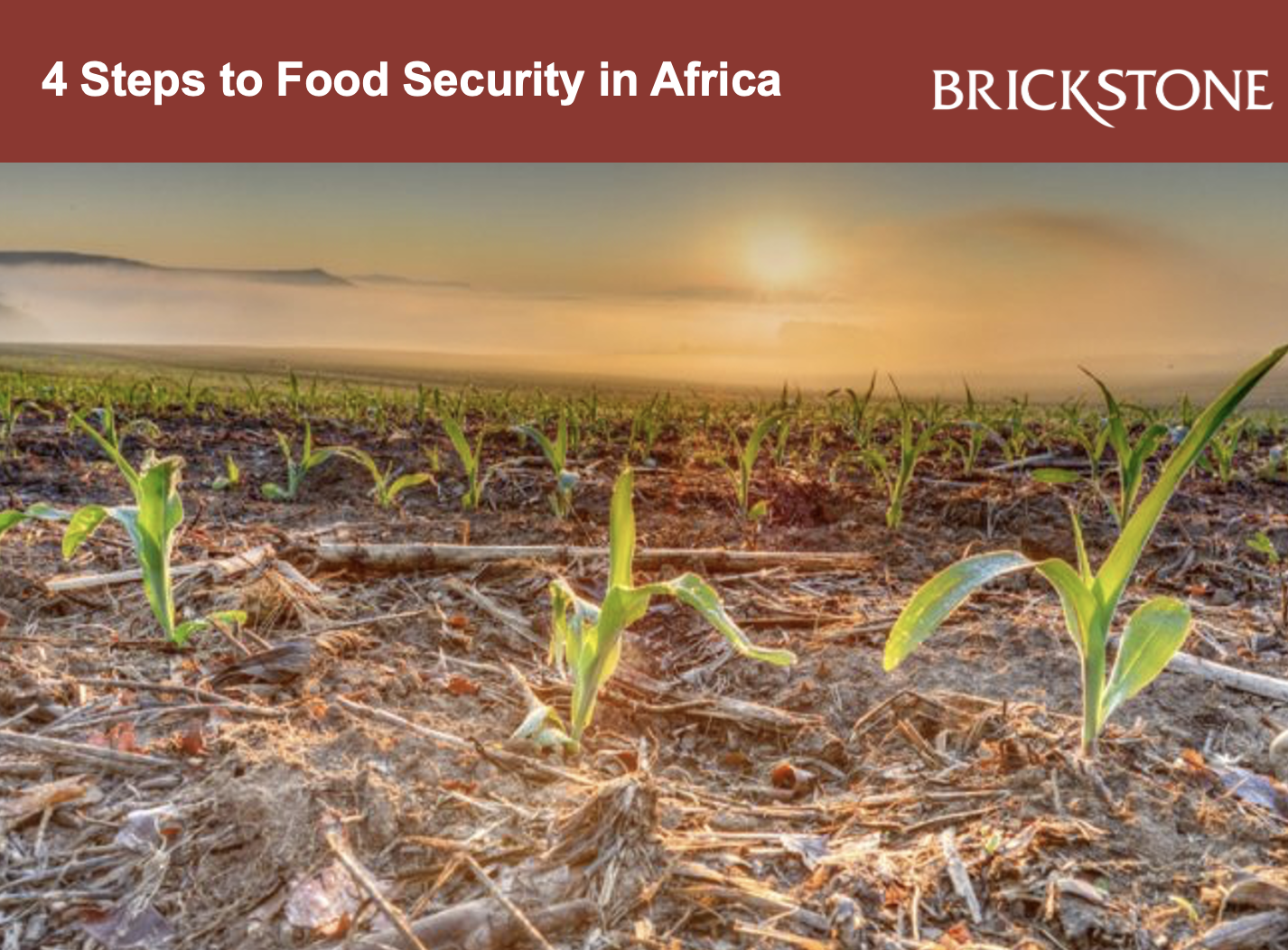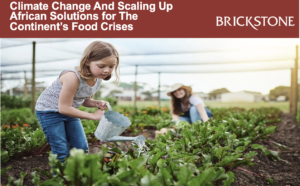4 Steps to Food Security in Africa
The food security in Africa is dampened as prolonged drought and extreme weather events caused by the climate crisis mean around 23 million people are at risk of acute food insecurity in the eastern Horn of Africa, Ethiopia, Kenya and Somalia.
This article by Brickstone reviews Weforum’s publication on boosting food security in Africa, highlighting key facts and insights.
Food Production and Food Security in Africa
Food production is an essential part of Africa’s economy. It makes up a third of the country’s GDP and employs around 50% of its people. Yet it still spends around $50 billion a year importing food and agricultural products. And it has around 65% of the world’s uncultivated agricultural land.
The World Economic Forum’s Sustainable Development Impact Meetings are addressing the global food crisis. Small and medium agricultural enterprises are the key to transforming food systems and improving food security in Africa.
Small and medium agricultural enterprises (agri-SMEs) are the key to transforming food systems and improving food security for the continent, according to the United States Agency for International Development (USAID).
Agri-SME’s are Africa’s largest employer and economic engine, but three-quarters of them can’t access formal bank financing, and are too large for microfinance. USAID estimates there’s a $100 billion gap in unmet demand for financing.
As part of the World Economic Forum’s Sustainable Development Impact Meetings, world leaders came together to discuss strengthening food value chains in Africa at the leadership panel Bridging the Gap: Financing Africa’s Agricultural Growth.
They addressed how donor governments, development finance institutions, African governments and the private sector can catalyze action through innovative financing, and by better supporting agri-SMEs.
Food security matters “both morally and for the global economy”, said Yellen. “The impacts of food insecurity on individuals and communities are acute. Hunger and poor nutrition undermine health and educational outcomes and well-being. Food insecurity also has economy-wide impacts, contributing to lower productivity that holds back economic growth,” she added.
The numerous cases of hunger constitute a humanitarian crisis, highlighting the underutilization of our continent’s immense potential for high productivity and surplus food production.
Here’s what are needed now, according to the speakers:
Help for countries in debt distress: To help support countries in debt distress to have space to think about climate action, we should extend the tenure of sovereign debt and introduce a 10-year grace period. Additionally, there is a need to reconsider the financial markets, particularly regarding sovereign debt and risk analysis, which have not evolved and often assign high risk inaccurately, as seen in the financial crisis. It’s essential to reimagine this space.
Tackle broader global challenges: Pandemics lower income. Conflict disrupts supply chains. Climate change poses risks to entire agricultural systems. So, combatting food insecurity also depends on broader efforts to address these global challenges and this requires evolving the multilateral development banks, which are a central pillar of our international economic system.
Invest in and empower African farmers: The African Development Bank swiftly responded to the closure of Black Sea ports during the Ukraine War by investing in African farmers. This $1.5 billion initiative aimed to ensure Africa’s self-sufficiency in food production rather than relying on food aid. The initiative has been a success, supporting 24 million farmers to produce 38 million metric tons of food valued at $12 billion. This output exceeds the potential food loss from importing from Russia or Ukraine.
De-risk agribusiness: At the UN General Assembly, Power and Tvinnereim introduced the Financing for Agricultural Small-and-Medium Enterprises in Africa (FASA) Fund, a multi-donor initiative aimed at unlocking substantial financing for agri-SMEs in Africa. The fund, supported by an initial commitment of $35 million each from USAID and Norway, seeks to raise a total of $200 million through additional donor contributions. This funding will help reduce investment risk, enabling the fund to support 500 agri-SMEs and 1.5 million smallholder farmers. Ultimately, the FASA Fund aims to benefit almost 7.5 million people and create around 60,000 private sector jobs in Africa.
Read the full blog here.






